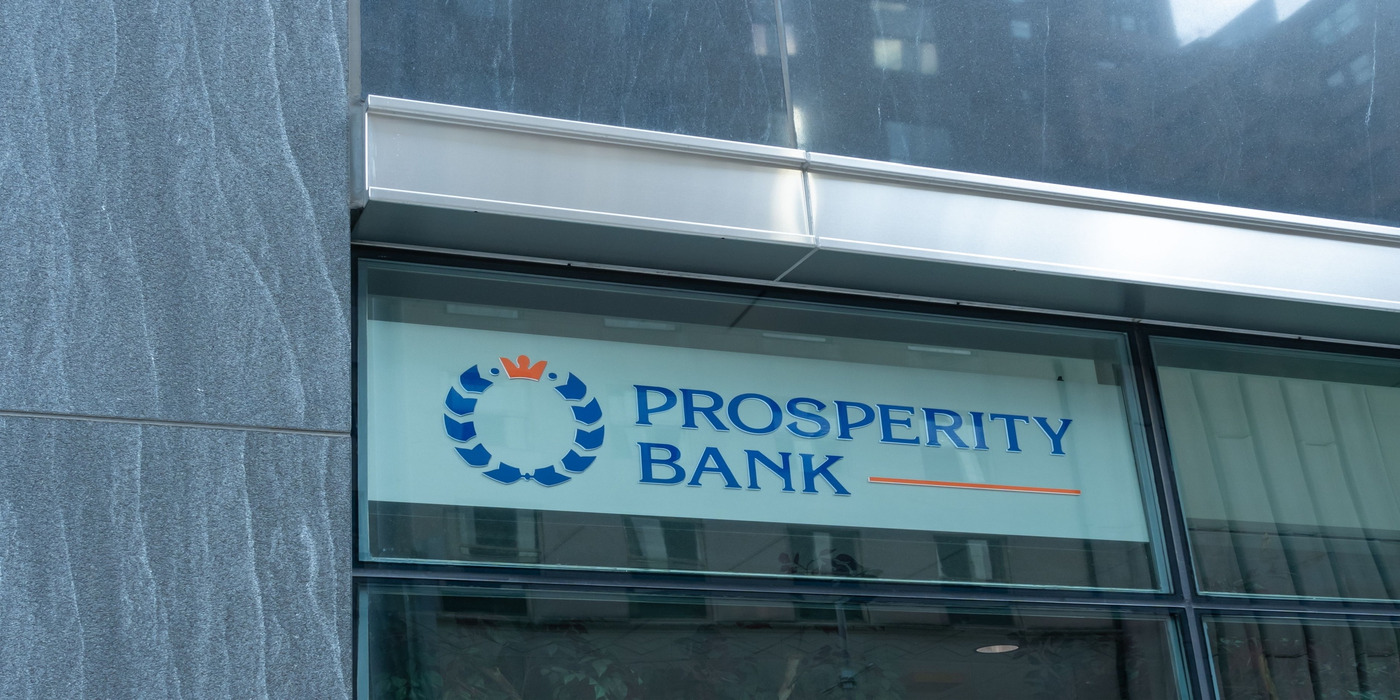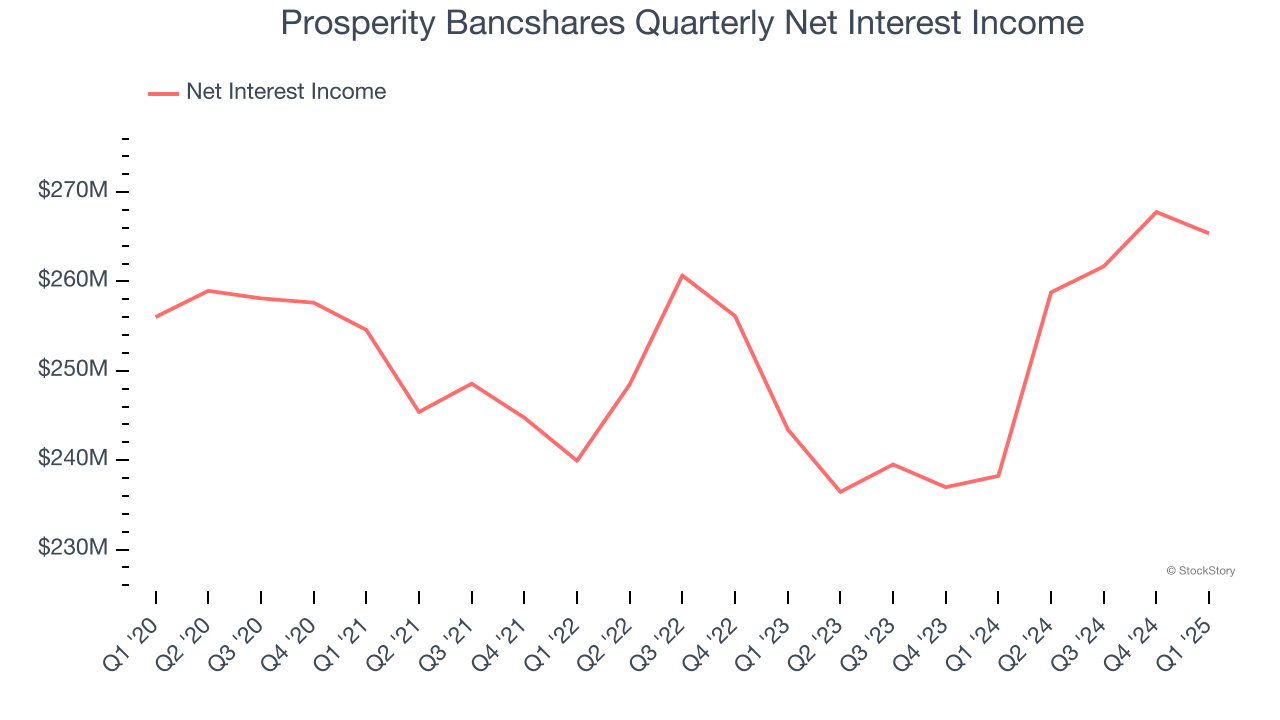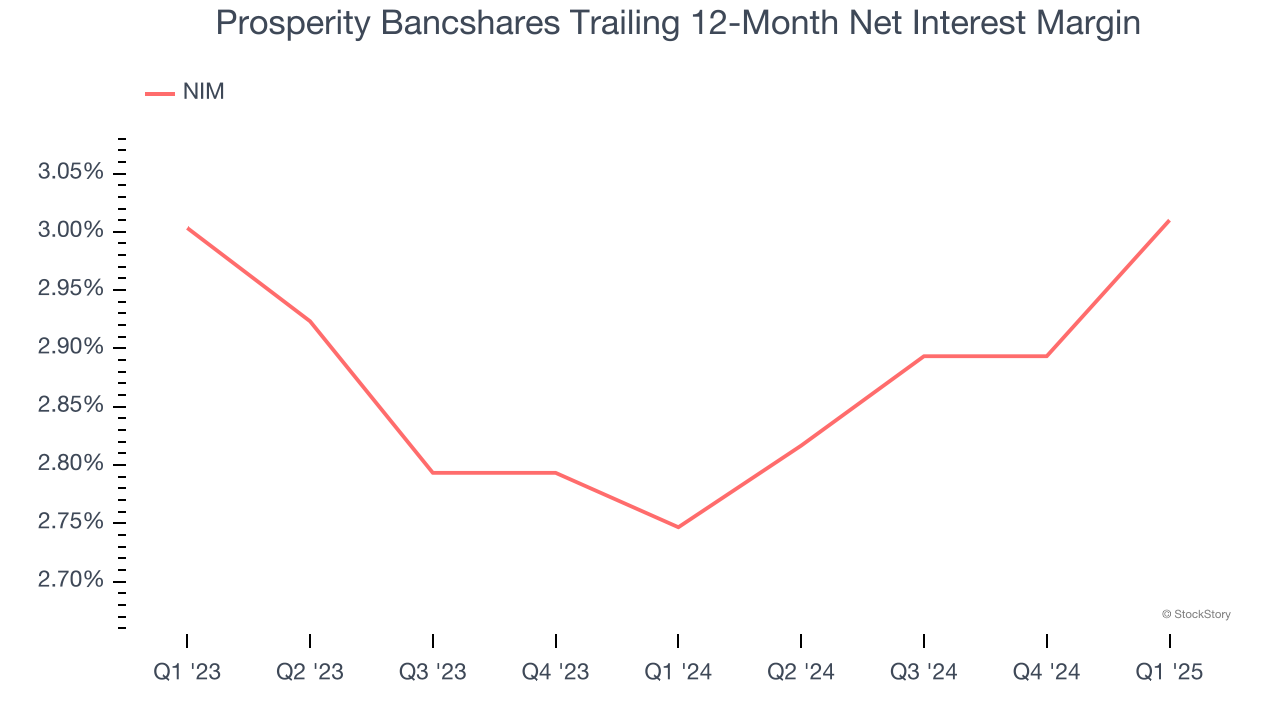
Over the past six months, Prosperity Bancshares’s shares (currently trading at $69.10) have posted a disappointing 9.3% loss while the S&P 500 was flat. This was partly due to its softer quarterly results and may have investors wondering how to approach the situation.
Is there a buying opportunity in Prosperity Bancshares, or does it present a risk to your portfolio? Check out our in-depth research report to see what our analysts have to say, it’s free.
Why Is Prosperity Bancshares Not Exciting?
Even though the stock has become cheaper, we're swiping left on Prosperity Bancshares for now. Here are three reasons why we avoid PB and a stock we'd rather own.
1. Net Interest Income Hits a Plateau
While banks generate revenue from multiple sources, investors view net interest income as the cornerstone - its predictable, recurring characteristics stand in sharp contrast to the volatility of non-interest income.
Prosperity Bancshares’s net interest income was flat over the last four years, much worse than the broader bank industry. This was driven by an increasing loan book and falling net interest margin, which represents how much a bank earns in relation to its outstanding loans.

2. Low Net Interest Margin Reveals Weak Loan Book Profitability
Revenue is a fine reference point for banks, but net interest income and margin are better indicators of business quality for banks because they’re balance sheet-driven businesses that leverage their assets to generate profits.
Over the past two years, we can see that Prosperity Bancshares’s net interest margin averaged a weak 2.9%, indicating the company has weak loan book economics.

3. High Interest Expenses Increase Risk
Leverage is core to the bank’s business model (loans funded by deposits) and to ensure their stability, regulators require certain levels of capital and liquidity, focusing on a bank’s Tier 1 capital ratio.
Tier 1 capital is the highest-quality capital that a bank holds, consisting primarily of common stock and retained earnings, but also physical gold. It serves as the primary cushion against losses and is the first line of defense in times of financial distress.
This capital is divided by risk-weighted assets to derive the Tier 1 capital ratio. Risk-weighted means that cash and US treasury securities are assigned little risk while unsecured consumer loans and equity investments get much higher risk weights, for example.
New regulation after the 2008 financial crisis requires that all banks must maintain a Tier 1 capital ratio greater than 4.5% On top of this, there are additional buffers based on scale, risk profile, and other regulatory classifications, so that at the end of the day, banks generally must maintain a 7-10% ratio at minimum.
Over the last two years, Prosperity Bancshares has averaged a Tier 1 capital ratio of 15.7%, which is considered unsafe in the event of a black swan or if macro or market conditions suddenly deteriorate. For this reason alone, we will be crossing it off our shopping list.
Final Judgment
Prosperity Bancshares isn’t a terrible business, but it doesn’t pass our quality test. Following the recent decline, the stock trades at 0.8× forward P/B (or $69.10 per share). Beauty is in the eye of the beholder, but we don’t really see a big opportunity at the moment. We're pretty confident there are superior stocks to buy right now. Let us point you toward one of our all-time favorite software stocks.
Stocks We Like More Than Prosperity Bancshares
The market surged in 2024 and reached record highs after Donald Trump’s presidential victory in November, but questions about new economic policies are adding much uncertainty for 2025.
While the crowd speculates what might happen next, we’re homing in on the companies that can succeed regardless of the political or macroeconomic environment. Put yourself in the driver’s seat and build a durable portfolio by checking out our Top 9 Market-Beating Stocks. This is a curated list of our High Quality stocks that have generated a market-beating return of 183% over the last five years (as of March 31st 2025).
Stocks that made our list in 2020 include now familiar names such as Nvidia (+1,545% between March 2020 and March 2025) as well as under-the-radar businesses like the once-small-cap company Exlservice (+354% five-year return). Find your next big winner with StockStory today.






